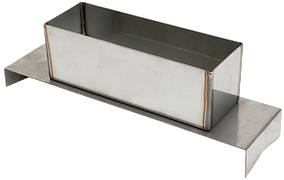

-
Soil-Field
-
Aggregate
- Abrasion, Durability
- Classification
- Moisture Test Equipment
- Rock Testing
- Sample Splitters
- Shakers, Screen
- Shakers, Sieve
- Sieves, ASTM Test
- Sieves, 18" Riddle
- Sieves, Mikro Air Jet
- Sieves, Rocker-Type
- Sieves, Soil Analysis
- Sieves, Wet Washing
- Sieves, Wet Washing-Cement
- Sieve, Brushes & Accessories
- Specific Gravity
- Washers, Aggregate
-
Soil-Lab
- Atterberg Limits
- Calcium Carbonate Content
- CBR Load Frames
- Color
- Consolidometers, Expansion Index Testing
- Hydrometer Analysis of Soil
- Moisture Content of Soil
- Permeability of Soil
- pH
- Pin Hole Dispersion
- Relative Density of Soil
- Soil Compaction Tests
- Soil Sample Ejectors
- Sand Equivalent Test
- Sample Preparation
- Unconfined Soil Tester
- Volume Change of Soil
-
Soil Mechanics
-
Concrete
- Air Meters and Indicators
- Bond Strength and Anchor Testing
- Compression Testing Machines
- Concrete Moisture Testing
- Consistency
- Corrosion
- Crack Monitors
- Cube Testing
- Curing
- Cylinder Testing
- Flexural Beam Testing
- Freeze-Thaw
- Ground Penetrating Radar
- Maturity
- Mixers - Concrete
- Rebar Locators
- Resistivity
- Self-Consolidating Concrete
- Set Time
- Slump Testing
- Strength Testing
- Super Air Meter
- Ultrasonic Testing
- Unit Weight
- Water Impermeability
-
Cement
- Air Entrainment – Mortar
- Alkali Reactivity
- Blaine Air, Fineness
- Bleeding Rate
- Bond Strength
- Calorimeter
- Cement Autoclave
- Compression Strength
- Cube Testing
- Expansion Testing
- Final Set Time, Gillmore
- Fireproof Mat Gauge
- Flow of Cement Mortar
- Grout Flow
- Grout Volume Change
- Humidity, Curing Cabinets
- Mortar Mixers
- Mud Flow & Density
- Organic Impurities
- Portland Cement Reference Material
- Prism Testing
- Samplers, Bulk Cement
- Test Sands
- Ultrasonic Measuring
- Vicat Apparatus Test
- Water Retention of Cement
-
Asphalt
-
Laboratory
- Balances and Scales
- Beaker Heating Supports
- Brushes
- Calipers
- Cork & Glass Cutters
- Dishes, Jars, Boxes
- Durometers
- Furnaces
- Gauges and Indicators
- Gloves
- Hot Plates
- Lab Burners
- Lab Clamps
- Lab Filter Pumps
- Lab Tongs
- Lab Tools
- Lab Tripods & Stands
- Labware
- Mallets, Rubber
- Mortar & Pestle
- Lab Ovens
- Pans and Bowls
- Rock Picks & Chisels
- Sample Containers
- Spatulas and Scoops
- Straight Edges
- Thermometers
- Digital Hand-Held Thermometers
- Digital, IR Thermometers
- Digital Thermometer, Thermocouples
- Min/Max / Alarm Thermometers
- Digital, Stem Thermometers
- Dual-Scale, Dial Thermometers
- Mercury Thermometers, ASTM
- Mercury-Free Thermometers
- Mercury, General Purpose
- Pocket-Type, Dial Thermometers
- Pocket-Type, Stick Thermometers
- Oven Thermometers
- Surface Thermometers
- Timers
- Transformers
- Trowels
- Rain Gauge
- New Products
Can't find what you're looking for?
Call us at
1.800.544.7220
![]() or use
Ask Humboldt
or use
Ask Humboldt
![]()





